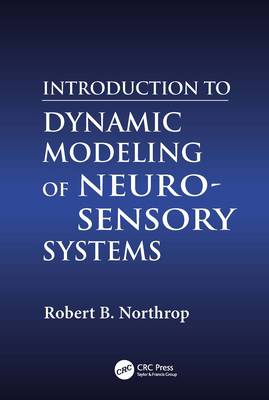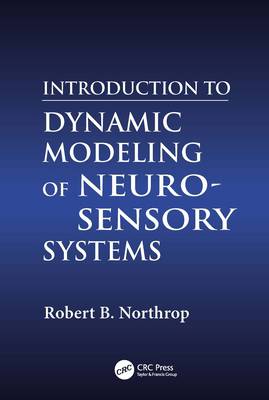
- Retrait gratuit dans votre magasin Club
- 7.000.000 titres dans notre catalogue
- Payer en toute sécurité
- Toujours un magasin près de chez vous
- Retrait gratuit dans votre magasin Club
- 7.000.0000 titres dans notre catalogue
- Payer en toute sécurité
- Toujours un magasin près de chez vous
Description
Although neural modeling has a long history, most of the texts available on the subject are quite limited in scope, dealing primarily with the simulation of large-scale biological neural networks applicable to describing brain function. Introduction to Dynamic Modeling of Neuro-Sensory Systems presents the mathematical tools and methods that can describe and predict the dynamic behavior of single neurons, small assemblies of neurons devoted to a single tasks, as well as larger sensory arrays and their underlying neuropile. Focusing on small and medium-sized biological neural networks, the author pays particular attention to visual feature extraction, especially the compound eye visual system and the vertebrate retina. For computational efficiency, the treatment avoids molecular details of neuron function and uses the locus approach for medium-scale modeling of arrays. Rather than requiring readers to learn a dedicated simulation program, the author uses the general, nonlinear ordinary differential equation solver Simnonä for all examples and exercises. There is both art and science in setting up a computational model that can be validated from existing neurophysiological data. With clear prose, more than 200 figures and photographs, and unique focus, Introduction to Dynamic Modeling of Neuro-Sensory Systems develops the science, nurtures the art, and builds the foundation for more advanced work in neuroscience and the rapidly emerging field of neuroengineering.
Spécifications
Parties prenantes
- Auteur(s) :
- Editeur:
Contenu
- Nombre de pages :
- 488
- Langue:
- Anglais
- Collection :
Caractéristiques
- EAN:
- 9780849308147
- Date de parution :
- 27-11-00
- Format:
- Livre relié
- Format numérique:
- Genaaid
- Dimensions :
- 163 mm x 242 mm
- Poids :
- 852 g

Les avis
Nous publions uniquement les avis qui respectent les conditions requises. Consultez nos conditions pour les avis.






